Dragonbox Algebra Twins - Fantastic Pre-Algebra Games For your ADHD Child
Is your child in Grade 3 or 4? Does he have ADHD? And are you stressed with the idea that in a couple of years, they will soon have to start learning preAlgebra? Then you must checkout the Dragonbox apps (now offered as part of Kahoot Kids).
Dragonbox has been making Math games since 2012. Born as an independent studio, their first game, Dragonbox Algebra took the world by storm when the famous journalist, Jordan Shapiro wrote that kids can learn Algebra in only 42 minutes. They have been making excellent kids apps after that, till their acquisition by Kahoot brought them under a bigger umbrella.
At Monster Math, we really respect the folks behind Dragonbox and are constantly learning from them.
What is Dragonbox Algebra
Dragonbox Algebra 1 and Dragonbox Algebra 2 are two different apps that help kids understand Algebra rules by just playing something that looks like a puzzle game.
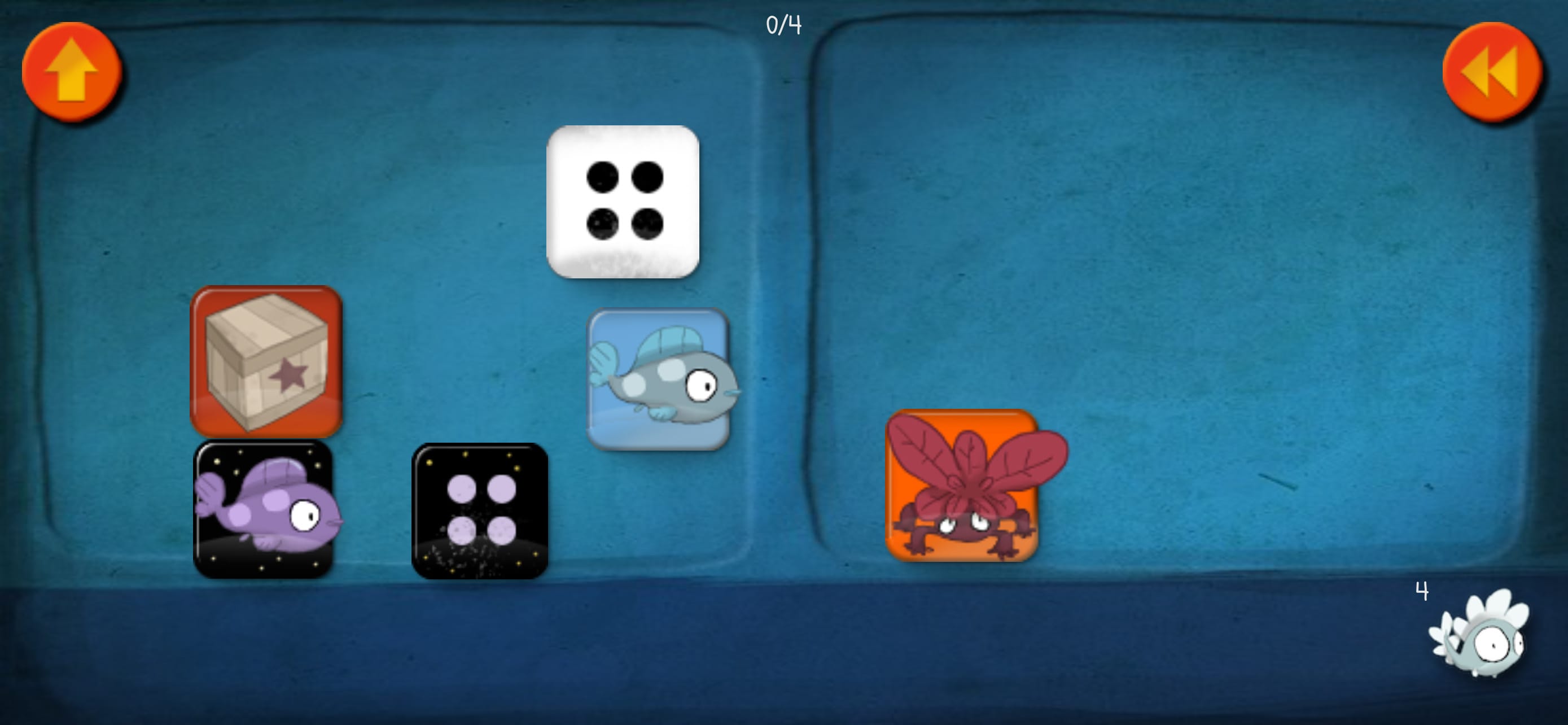
The objective of the game is to isolate the box whichever side it is - in the above case on the left. To do so, there are other rules you can use, such as dragging a card onto it's "negative" card and cancelling them, or over time, bringing new cards from the deck to cancel other cards.
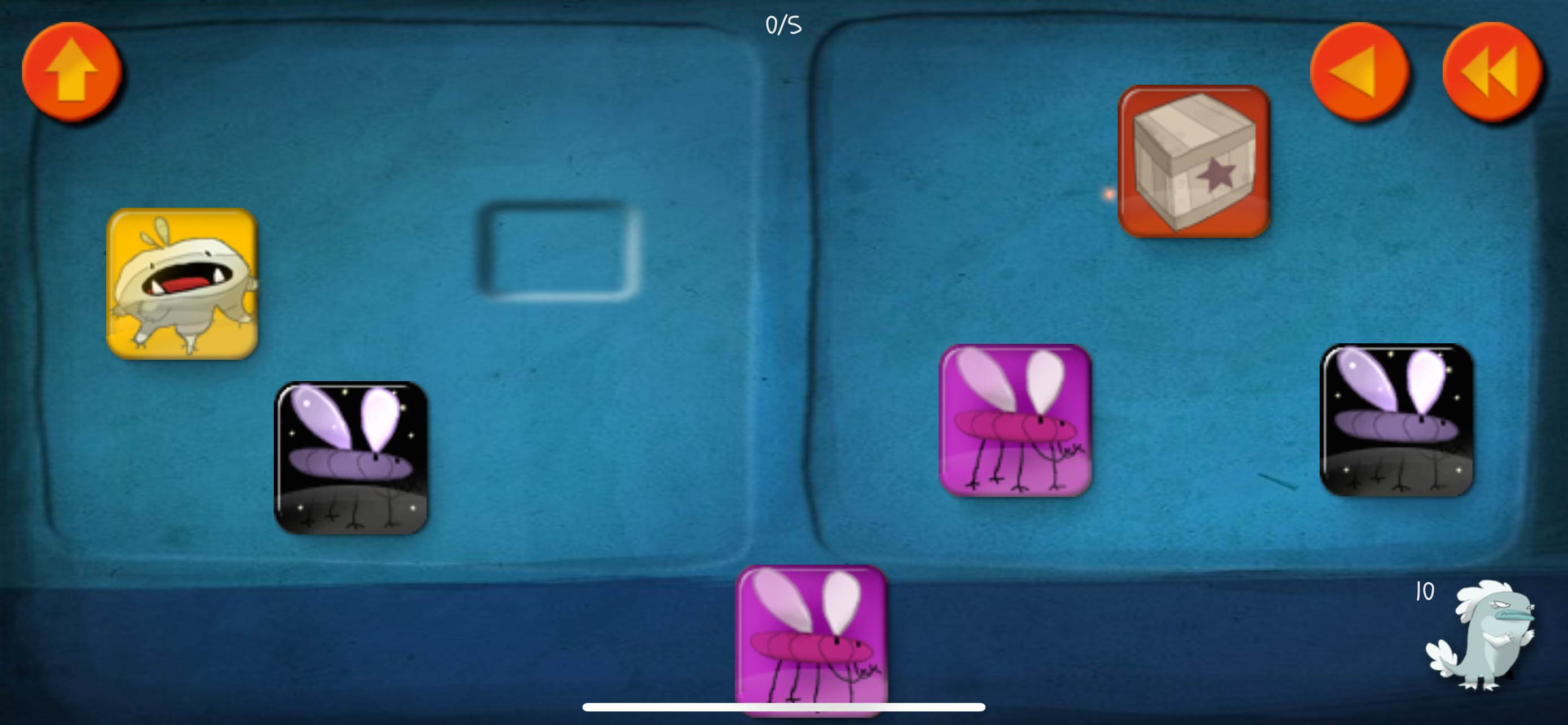
Some other rules also exist - for example if you add a card from the deck, you have to add it to both the sides.
IF all this feels familiar, that's because these are some of the rules of algebra!
- Add (or subtract) same number to (from) both sides
- A number minus itself is zero
As the game proceeds, the surprising reveal is that the "box" is actually "x" - and it's the "x" that you are isolating on one side, to answer the infamous algebra question "What is X?"
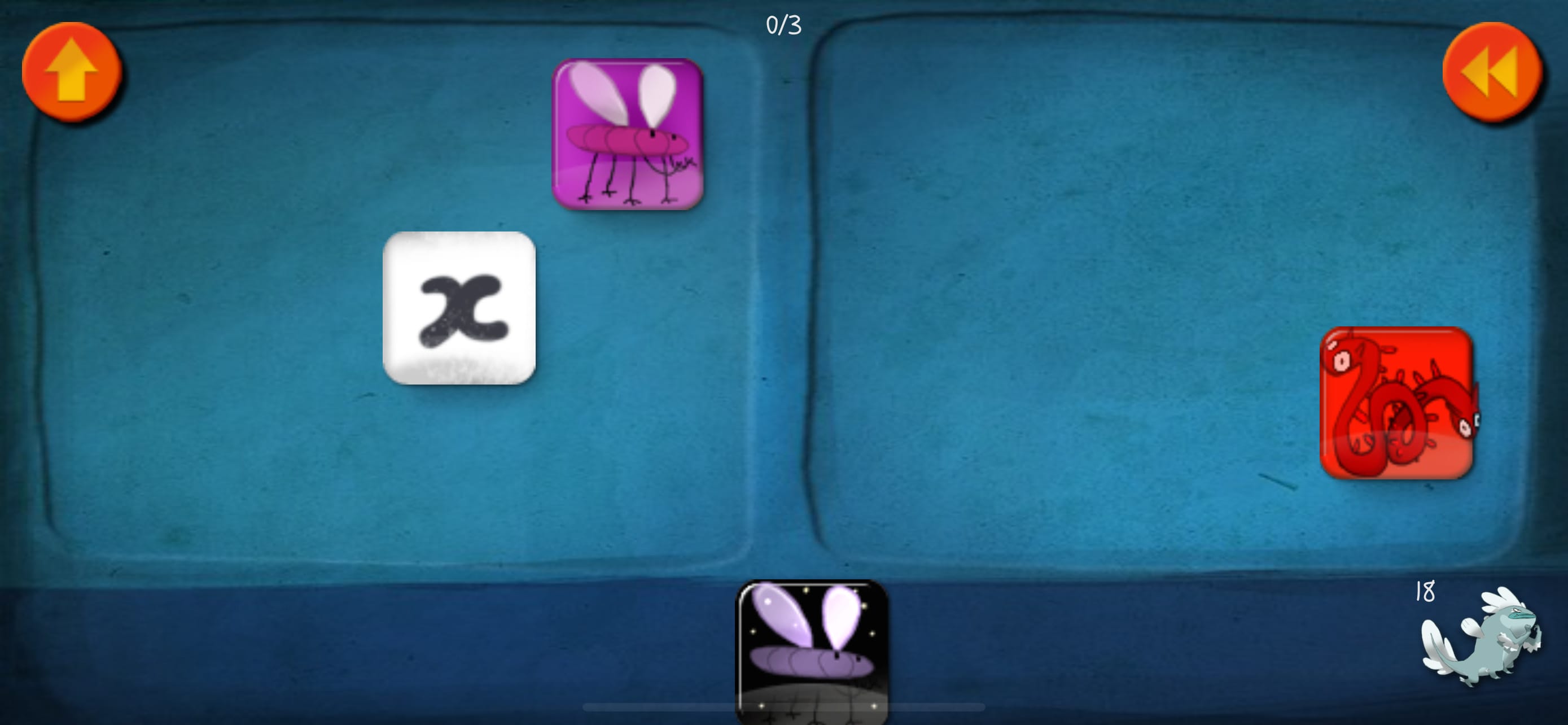
So in a nutshell, the game mirrors the rules of Algebra, but in a more friendly and inviting way in the form of a game - and once kids are good at it, it reveals they've been doing algebra all along, suddenly removing the mental barrier a child might be feeling towards it.
Why two apps?
Dragonbox Algebra 1 is meant for somewhat younger kids, who are just learning the basics of Algebra, whereas Dragonbox Algebra 2 is meant for slightly older kids (9+) who already know the basics and are ready for more challenging things (such as multiplication or division on both sides of the algebraic equations).
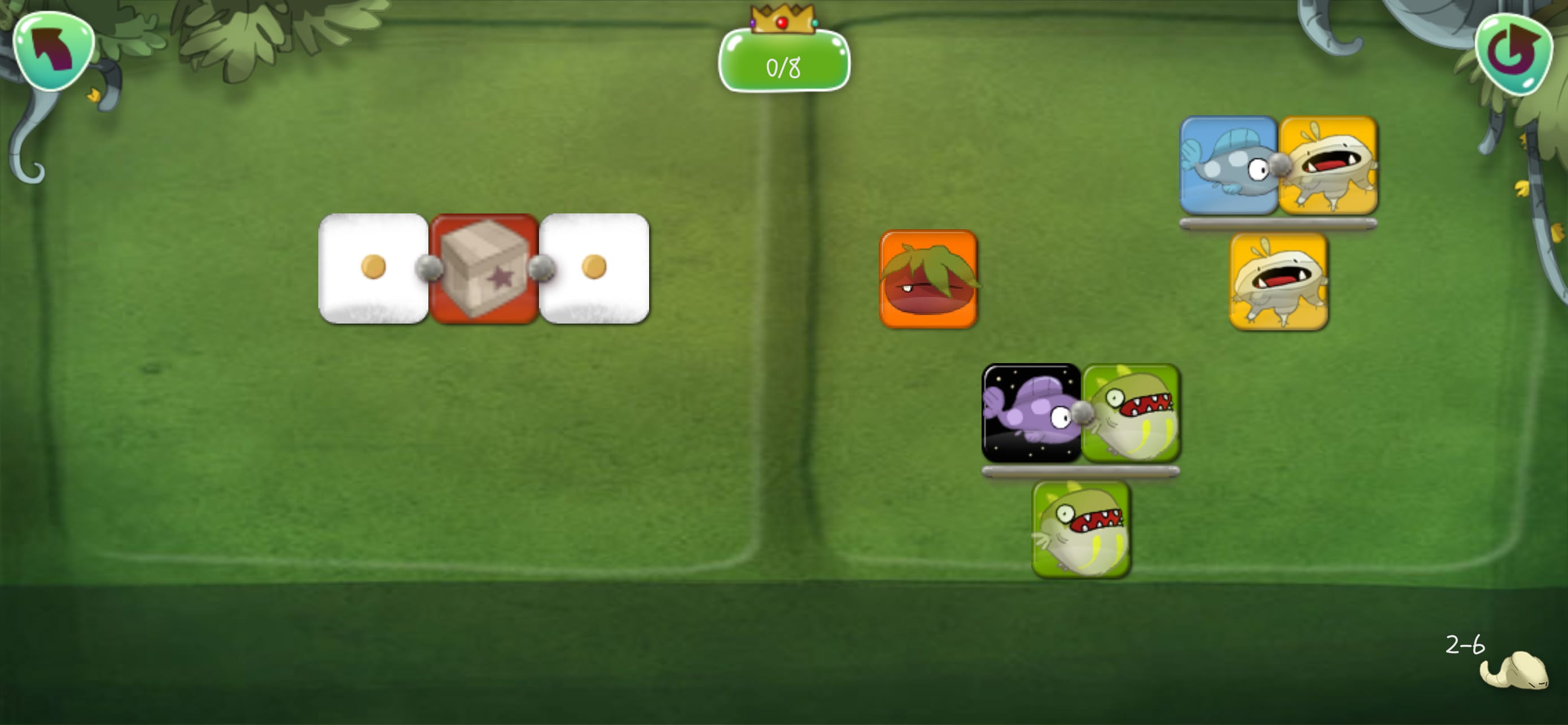
So Kids really learn Algebra through this?
Well, yes and no.
First off - the games are absolutely brilliant. The pedagogy seems very well thought out - for example, note the following algebraic equation -
x + 4 = 20
A common misconception is that you move 4 to the right by changing the sign.
x = 20 - 4
x = 16.
But this is not accurate and can lead to doubts. Why does 4 move from one side to another? Why does the sign have to change? What happens if it's multiplication instead of addition? And so on.
The right way to visualise this is -
x + 4 = 20
Subtract 4 from both sides.
x + 4 - 4 = 20 - 4
x = 16.
Dragonbox Algebra does precisely this. It doesn't let you move a card from one side to another, but it does allow you to "subtract" the same card from both sides, so as to cancel out any numbers to isolate x. It's a small thing, but shows attention to detail towards how algebra needs to be taught.
On the other hand - the apps cannot replace all algebra work. It helps kids familiarise with the rules, but doesn't help them understand why those rules exist in the first place - nor does that seem to be the developers' intention.
How to use Dragonbox Apps
These apps are best used as a way to make Algebra more friendly - and get kids to understand the rules behind algebra. This makes it more of a conversation starter by the time you get to actual algebra problems.
It's also very helpful to visualise the rules and get them practiced (such as not forgetting to add a number to left side when you do it to the right side).
So instead of replacing all the algebra work, it can definitely help shortcut some steps, before focusing on more algebra practice.
For older kids, you can directly start with Dragonbox Algebra 2 - it's not necessary to go via the first app, since the rules are reintroduced in the second app (much faster though). But if you see them struggle with the pace, you can drop back to the first app so they can learn at their own pace.
How to get the Dragonbox Apps?
Dragonbox Algebra apps are a part of the Kahoot Kids subscription. You can download either of the apps and then just start a free trial from within - the subscription costs $35/year for all Kahoot kids apps, which seems like a reasonable subscription price.
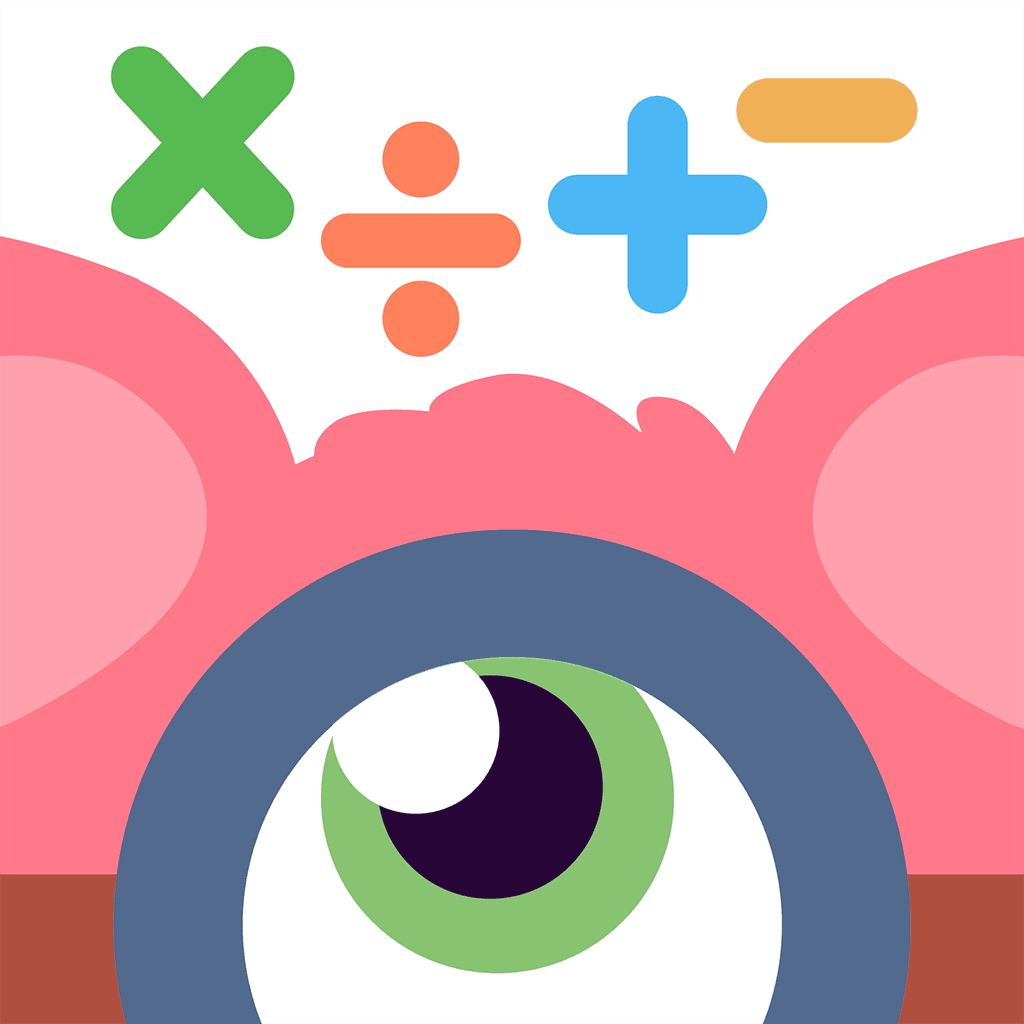

Comments
Your comment has been submitted